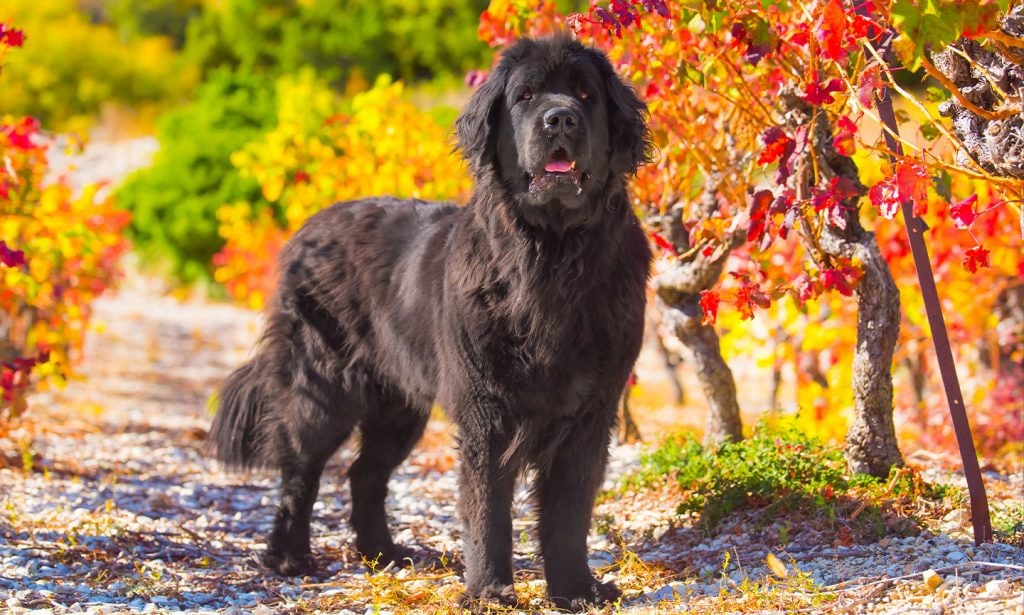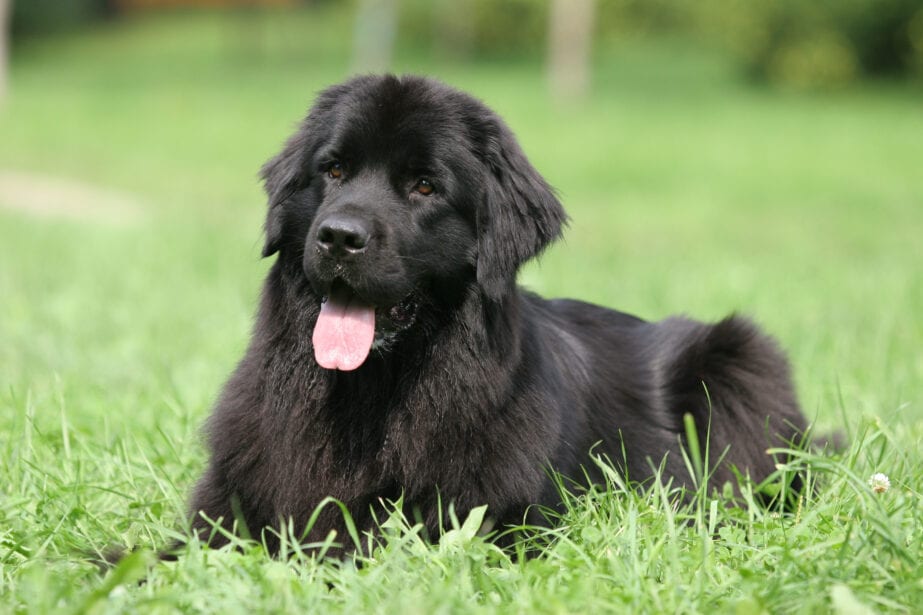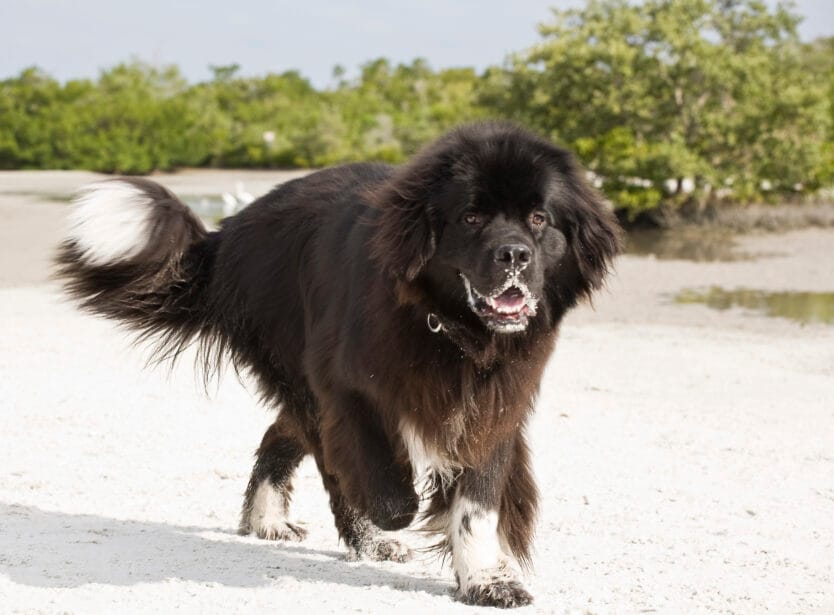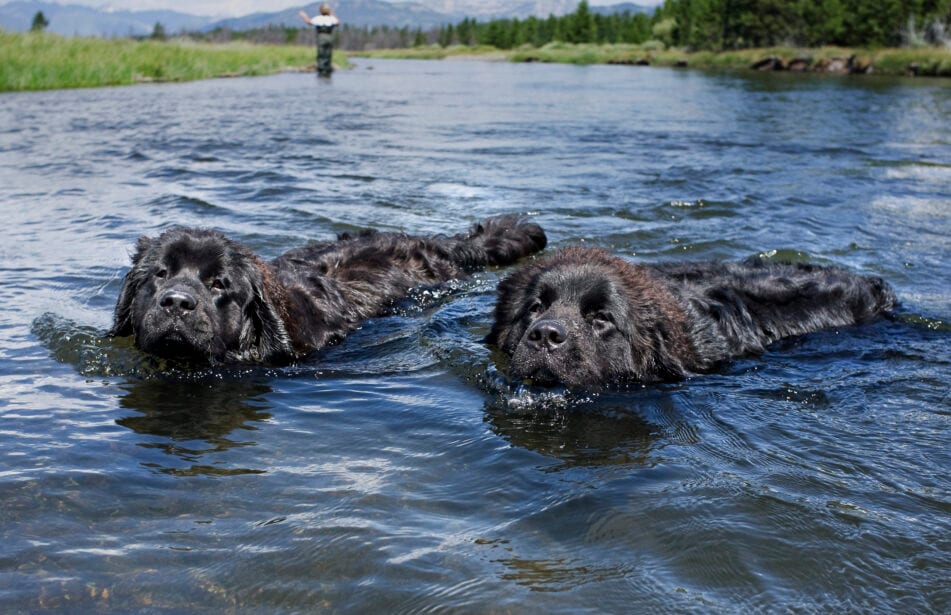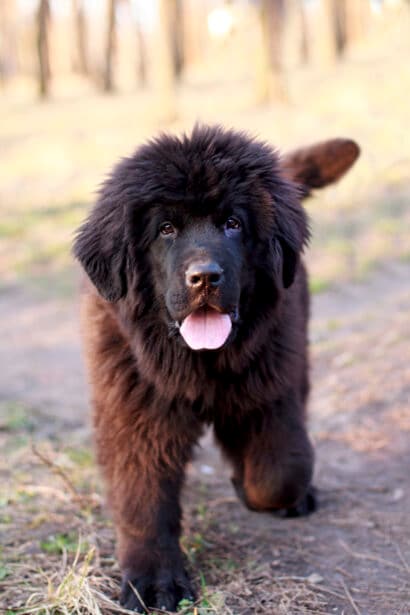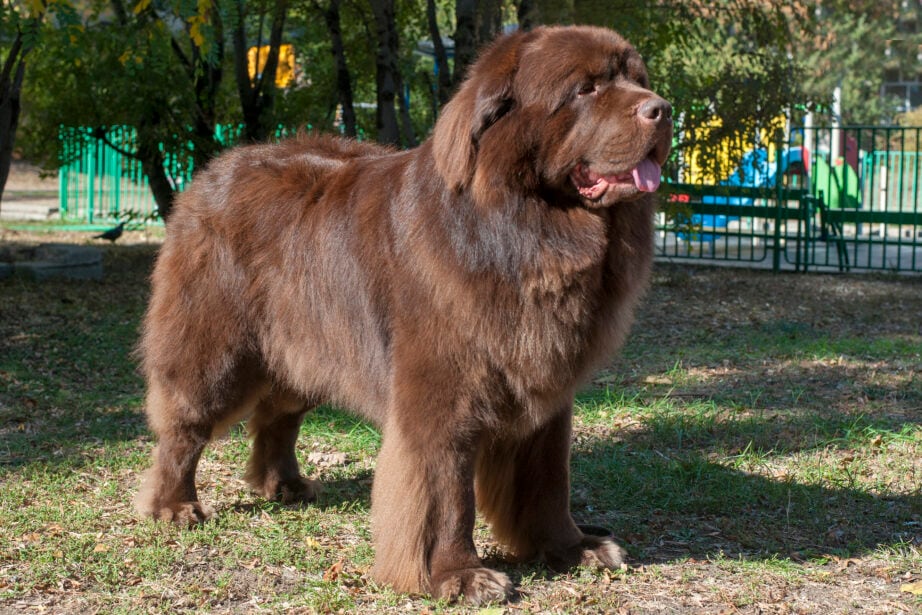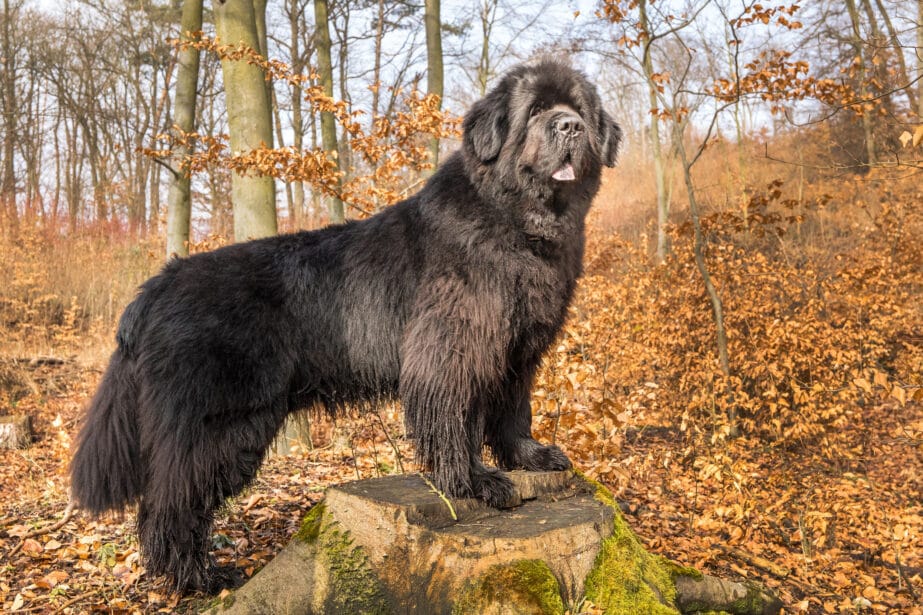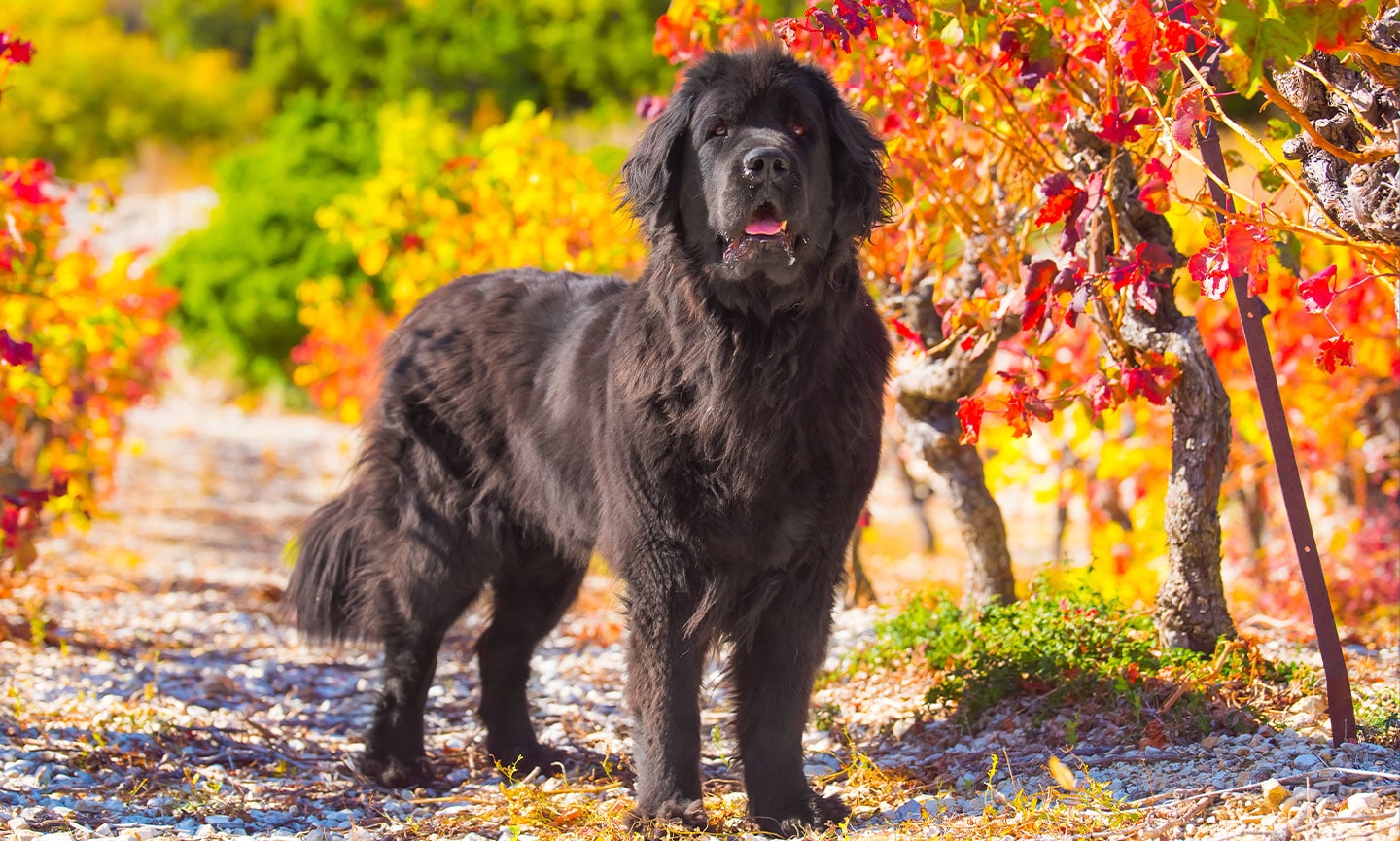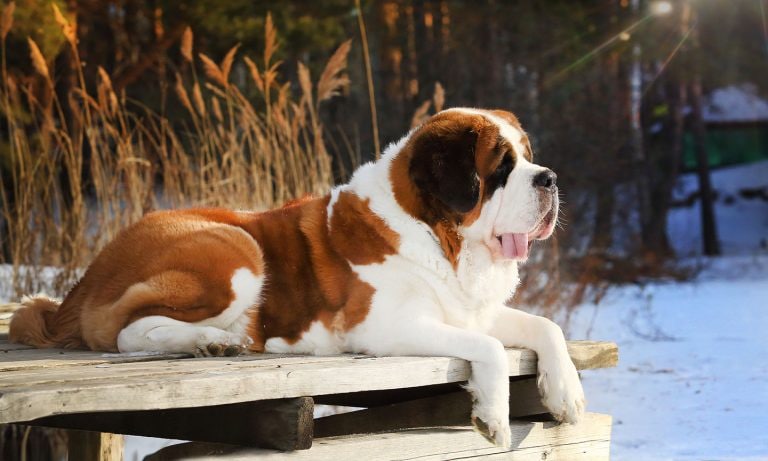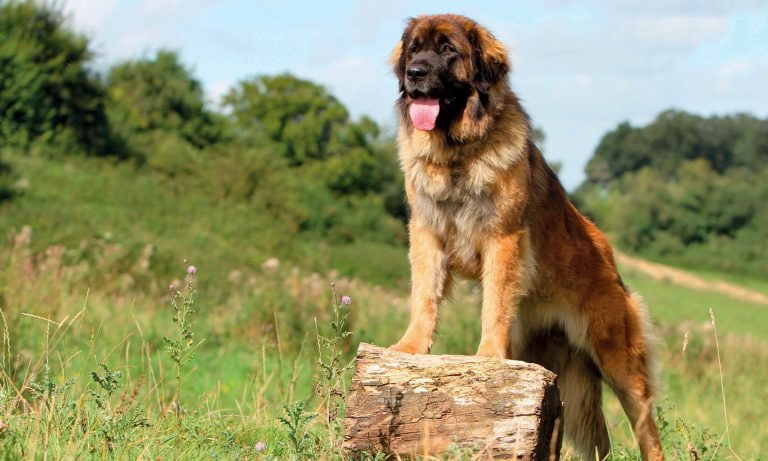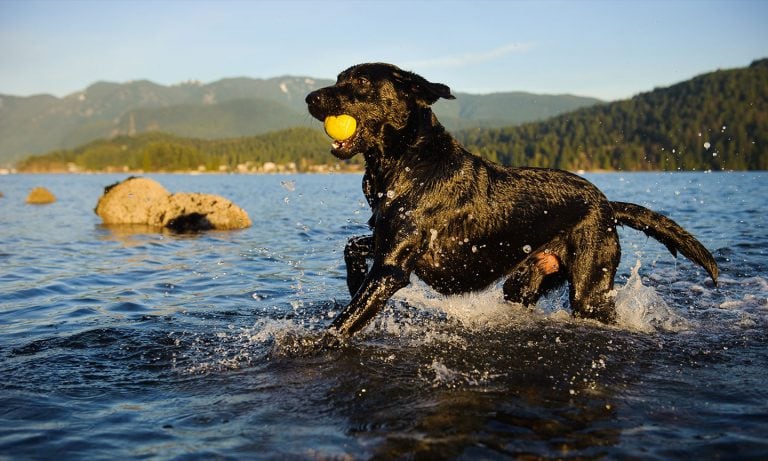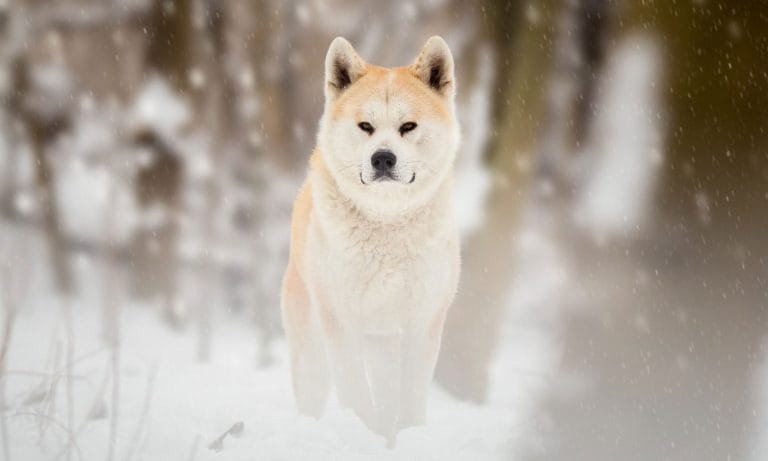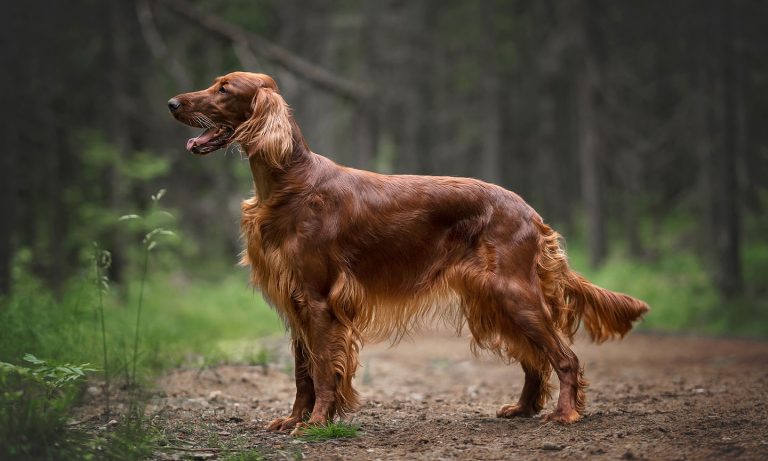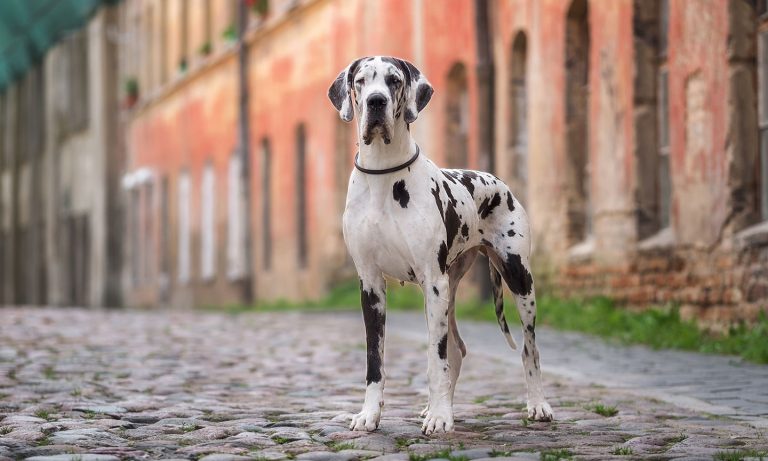Newfoundlands, aka Newfies, are friendly charmers who don’t know their own size. Want to meet your neighbors? Just take this dog with you on a walk—they’ll be happy to make introductions with all the strangers you pass. (You may want to keep a hanky or two on hand to wipe the drool off your pup’s face so your new friends don’t end up with an unwanted bath.) These dogs love the outdoors and enjoy long hikes in the woods or a day on the lake with family and friends. Just try and keep them out of the water—we double dog dare you! Loving, sweet and just happy to be with you, these gentle giants are guaranteed to take up a lot of space, both in your home and in your heart.
Breed Snapshot
Temperament:
SweetheartPatientDevoted CompanionCoat Color:
BlackWhite And BlackBrownGray
Best For
Newfoundlands, known for their gentle giant demeanor, need regular exercise and grooming. They thrive in families with space and love water activities.
Newfoundland Temperament
Newfoundlands are known for having a patient and gentle personality. They love being around their people and are naturally friendly with strangers. Just like any other breed, they need early socialization (aka exposure to new people, places and things) to understand how to play appropriately with other dogs; sometimes the goofy Newfie doesn’t realize how big they are! But consistent training will help your Newfoundland puppy grow up to be a confident, well-mannered dog.
The sweet-tempered Newfoundland makes a great family dog, as they typically get along well with kids of all ages, including babies and toddlers. While it may be cute, make sure your child doesn’t sit or ride on your Newfie. The dog may tolerate it, but as they get older, health problems like hip dysplasia can make them uncomfortable. This breed isn’t known for having aggressive tendencies, so pain is about the only reason a Newfoundland would growl or bite (outside of typical puppy behavior).
While the Newfoundland breed is often treated as family (especially in the United States), they are still used as working dogs in their home provinces of Newfoundland and Labrador, Canada. Originally bred for their skill at water rescues and to haul in fishing nets, today, the dogs are used for pulling carts or as pack horses. (And you may find they enjoy participating in “working” dog sports like carting and drafting competitions.)
How to Care for a Newfoundland
These large pups need a large amount of care. (What else would you expect from a dog the size of a teenage boy?) The Newfoundland dog sheds. A lot. And they drool. A lot. Besides that, they are an outgoing and intelligent breed who enjoys learning. Newfies don’t need a ton of exercise, but they do enjoy being outside with their people. Their biggest requirement? Physical space—a lot of it. Similar to other large breeds, their ideal environment is a larger home with a roomy backyard.
Newfoundland Health
Newfoundland dogs have a lifespan of 9 to 10 years and, unfortunately, are at risk for several health issues. But that shouldn’t stop you from bringing this gentle giant into your family. Armed with knowledge, you can help your pup live the happiest life possible.
- Elbow and Hip Dysplasia: Often seen in larger breeds, elbow and hip dysplasia are conditions that occur when the joint doesn’t form properly and can be painful for your pup. These conditions can be diagnosed with an X-ray and treatment may include joint supplements, pain medication and, in severe cases, surgery.
- Dilated Cardiomyopathy (DCM): Newfoundlands are prone to DCM, a heart condition that happens when the heart becomes enlarged and weak preventing it from effectively pumping blood. This can eventually lead to congestive heart failure. If your veterinarian hears a heart murmur or has concerns about your pup’s heart, they will likely refer you to a veterinary cardiologist for additional diagnostics and treatment.
- Cystinuria: Cystinuria is a genetic kidney defect that causes stones to form in the urinary system. Bladder stones often need to be removed surgically. Long-term care typically includes a dietary change to prevent the formation of future stones.
- Bloat or Gastric Dilatation-Volvulus (GDV): Large-breed dogs like the Newfie are prone to bloat. This is a life-threatening emergency in which the dog’s stomach fills with gas and becomes twisted. It can occur suddenly, and common symptoms include abdominal distension, retching/dry-heaving and restlessness. To help reduce the chance of your dog experiencing GDV, use a slow feeding bowl at mealtimes, keep the bowl on the ground (don’t elevate it) and avoid exercising at least an hour before or after mealtimes. If you think your pup is suffering from GDV,got to your vet immediately.
Newfoundland History
The Newfoundland breed originated in the Canadian province of the same name in the 18th century. Fishermen relied on the dogs with their partially webbed feet and natural-born swimming abilities in water rescues and to haul fishing nets ashore. Their immense lung capacity enables them to swim long distances. While Newfies are known as water dogs, they are still used in the provinces of Newfoundland and Labrador as working dogs (dogs bred to perform a job) for pulling carts or as a pack horse. They were eventually exported to England; today, most purebred Newfies are descendants of the British Newfies (even the ones living in Newfoundland!).
The breed can be found throughout history books. In 1802, Lewis and Clark had a Newfoundland named Seaman as part of the expedition. (The dog appears on 10 different monuments across the country.) Multiple US presidents had Newfies, including James Buchanan, Ulysses S. Grant and Lyndon B. Johnson. The breed earned its reputation as a “nanny dog” for watching after Senator and Mrs. Robert F. Kennedy’s 11 children. The Newfoundland dog was recognized by the American Kennel Club in 1886, becoming the AKC’s 32nd breed.
Looking to buy a Newfie puppy? You can find a list of reputable breeders on the AKC’s website. Working with a reputable breeder usually means you’re getting a puppy who’s been screened for health issues and temperament. Depending on the breeder, the average price for a Newfoundland puppy is between $1,200 and $3,000. Pet parents can also adopt from Newfoundland rescue groups around the country or keep an eye out for the breed at their local animal shelter. Search Chewy’s database of adoptable dogs for Newfies in your area.
FAQs
Do Newfoundlands shed?
Yes, Newfoundland dogs shed year-round, with heavy shedding seasons in the spring and fall. To keep up with all that hair, you’ll need to brush your pup daily during shedding season and weekly at other times of the year.
How big do Newfoundlands get?
Newfoundland dogs get big—very big. They can grow up to 28 inches tall (at the shoulder) and weigh up to 150 pounds.
Are Newfoundlands good with kids?
Yes, Newfoundlands are great with kids. The good-natured nanny dog is usually well-behaved around children. (Just be sure to watch them around small kids and babies; Newfies sometimes don’t know they’re so big!)
What are the most popular Newfoundland names?
The most popular Newfoundland dog names include Oscar, Sophie, Eeyore, Talia, Molly, Manny, Murphy, Sammy, Ralphie and Mocha. Get more dog name inspiration here.
What are the most common Newfoundland mixes?
The most common Newfoundland dog mixes are:
- Newfoundland-Poodle mix (Newfypoo)
- Newfoundland-Lab mix (Newfador, New Labralound, or Labrafoundland)
- Newfoundland-Golden Retriever mix (Golden Newfie)
- Newfoundland-German Shepherd mix (New Shep)
- Great Pyrenees-Newfoundland mix (Great Newfie)
- St. Bernard-Newfoundland mix (St. Bernewfie)
Note: These are not purebred dogs but mixed breeds.
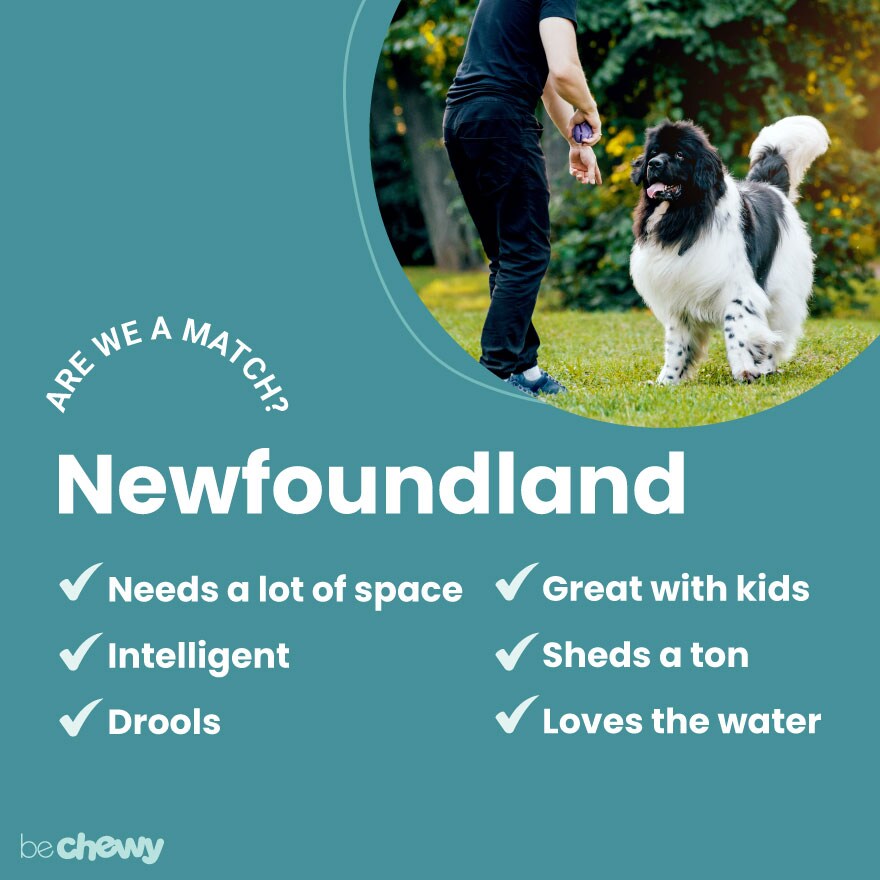
Top Takeaways
Newfoundlands are endlessly patient and loyal, which is likely how the breed earned the nickname “nanny dog.” They don’t require much daily exercise and love any outdoor activity with their family. The pros of this sweet breed far outweigh the downsides of their shedding and drooling (they can’t help it, after all!). Of course, they need more space than smaller pups, but these dogs are intelligent and fun to train for a pet parent with some experience.
Expert input provided by Dr. Mandy Boos, a veterinarian at Laurel Veterinary Clinic in Broomfield, Colo., and Russell Hartstein, CDBC, CPDT-KA, and founder of the LA-based Fun Paw Care.
Breed characteristic ratings provided by veterinarian Dr. Sarah J. Wooten, DVM, CVJ, a veterinarian at Sheep Draw Veterinary Hospital in Greeley, Colorado; dog trainer and behavior consultant Irith Bloom, CPDT-KSA, CBCC-KA, CDBC, owner of The Sophisticated Dog, LLC, in Los Angeles; and certified animal behavior consultant Amy Shojai, CABC, in Sherman, Texas.
The health content was medically reviewed by Chewy vets.

Search for Adoptable Newfoundlands Near You
Female Names
- Luna
- Bella
- Willow
- Lucy
- Stella
- Daisy
- Winnie
- Maggie
- Coco
- Rosie
Male Names
- Bear
- Moose
- Gus
- Teddy
- Odin
- Koda
- Winston
- Baloo
- Murphy
- Finn
Share:
